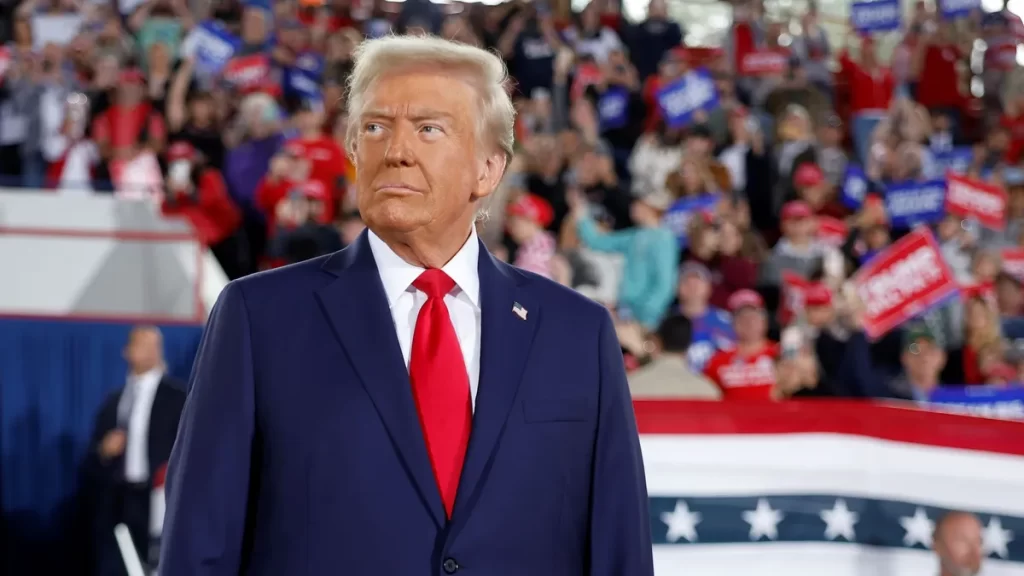
The election of Donald Trump as president will shape the evolving payments landscape as his administration touches everything from stablecoins to earned wage access policies to federal antitrust priorities.
With payments processes caught up in rapid change, new laws and regulatory policies put forward by his administration will be influential, for better or worse, in creating a climate in which new digital payments and cryptocurrency schemes will develop. His administration will also be referees for the environment in which new fintechs, such as Stripe and Block, take on larger legacy companies, like Visa and Amazon.
While it’s too early for anyone to know exactly what policy positions Trump’s administration may take on one issue or another, lawyers, professors and executives involved the industry shared their insights on changes his second term may bring during interviews the day after the election results landed.
The Consumer Financial Protection Bureau, which has been aggressive in challenging new digital payments tools during the Biden administration under Director Rohit Chopra, is likely to take a new tack. Indeed, appointees such as Chopra typically leave either before a new president is installed, or shortly thereafter.
Trump probably can’t just dissolve the CFPB, without being provided that authority by Congress, but he can have it “focus on different things, or take out all its teeth,” said John Diamond, director of the Center for Public Finance at Rice University’s Baker Institute.
How CFPB policy may be remade
The new president could do that by appointing a director who could stall enforcement actions, or just not enforce some rules at all, Diamond added.
Chopra’s staff has pursued new policies aimed at creating guardrails for emerging payments services, such as buy now, pay later financing and pre-payday earned wage access, but his successor is likely to be less aggressive. In May, the CFPB issued an interpretive rule requiring BNPL providers to adhere to consumer regulations that apply to credit card companies. And in July, it issued another such rule saying EWA providers must follow lending laws, prompting a barrage of industry criticism.
Those interpretive rules could be interpreted differently by the next director, and therefore “vulnerable to reversal,” said Adam Rust, director of financial services for the Consumer Federation of America.
The new president could also weaken the agency by not replacing personnel that retire, squeezing its resources and appointing a director who would slow-walk regulations or impose fines so small as to be inconsequential to a big company, Rust said in an interview.
“Consumers still expect to be protected from scams and fraud and deceptive practices,” Rust said. “The problem is that regulators will be responding to their harms with fewer tools and fewer resources.”
Consumer protection issues in the financial sphere didn’t drive the outcome of the presidential election, but those areas could still be dramatically affected by the new administration, Rust said.
“Whoever will be leading the CFPB in a Trump administration will not be looking to take the expansive view of powers and obligations and jurisdiction that has seemingly been the case under the Biden administration,” said Chris Daniel, who is chair of the law firm Paul Hastings global fintech and payments group.
During his first administration, the CFPB took a gentler approach to earned wage access, delivering a 2020 advisory opinion that said some versions of EWA services, which were provided through an employer at no cost to the employee, could operate in a safe harbor with no need to adhere to lending laws. But Chopra’s staff replaced that prior guidance in July, just a few weeks after it rescinded EWA firm Payactiv’s special treatment protections.
Impact for credit card interests
The Biden administration’s CFPB has also been on a crusade against junk fees, seeking to do away with credit card late fees, and other bank finance charges that Chopra contended were overburdening American households.
On that front, there may be some common ground with Trump, who proposed during his campaigning this year to impose a temporary 10% credit card interest rate cap. “We’re going to cap [interest rates] at around 10%,” Trump said during a rally on Sept. 18, calling it a “temporary” fix while Americans “catch up.” “We can’t let them make 25 and 30 percent,” he added, referring to credit card issuers.
In addition, Vice President-Elect J.D. Vance sponsored the Credit Card Competition Act, a bill that would force the banks that issue credit cards to ensure that there is a network other than Visa or Mastercard available for routing such transactions when consumers swipe their cards. Still, at least one news report said Vance has backed away from the proposal.
The proposal has set off a battle royale between large retailers, who support it because it would allow them to reduce their costs for processing card payments, and banks and payments companies that don’t want the federal government mandating competition in the market. While the bill has won some bipartisan support, it has made little progress in either chamber of Congress. With Vance in the administration, it could have new life.
The power of Trump allies in crypto
How Trump reacts to digital currencies will turn on which of his political allies gain leverage in his new administration. The cryptocurrency community is illustrative of how that dynamic could play out. Trump’s view of policies often turns on “the power of his friends,” Georgetown Professor Jim Angel pointed out. “In his first administration, crypto was a scam,” Angel explained. “Now, crypto people have money and are supporting him, well, now they’re his friends.”





























